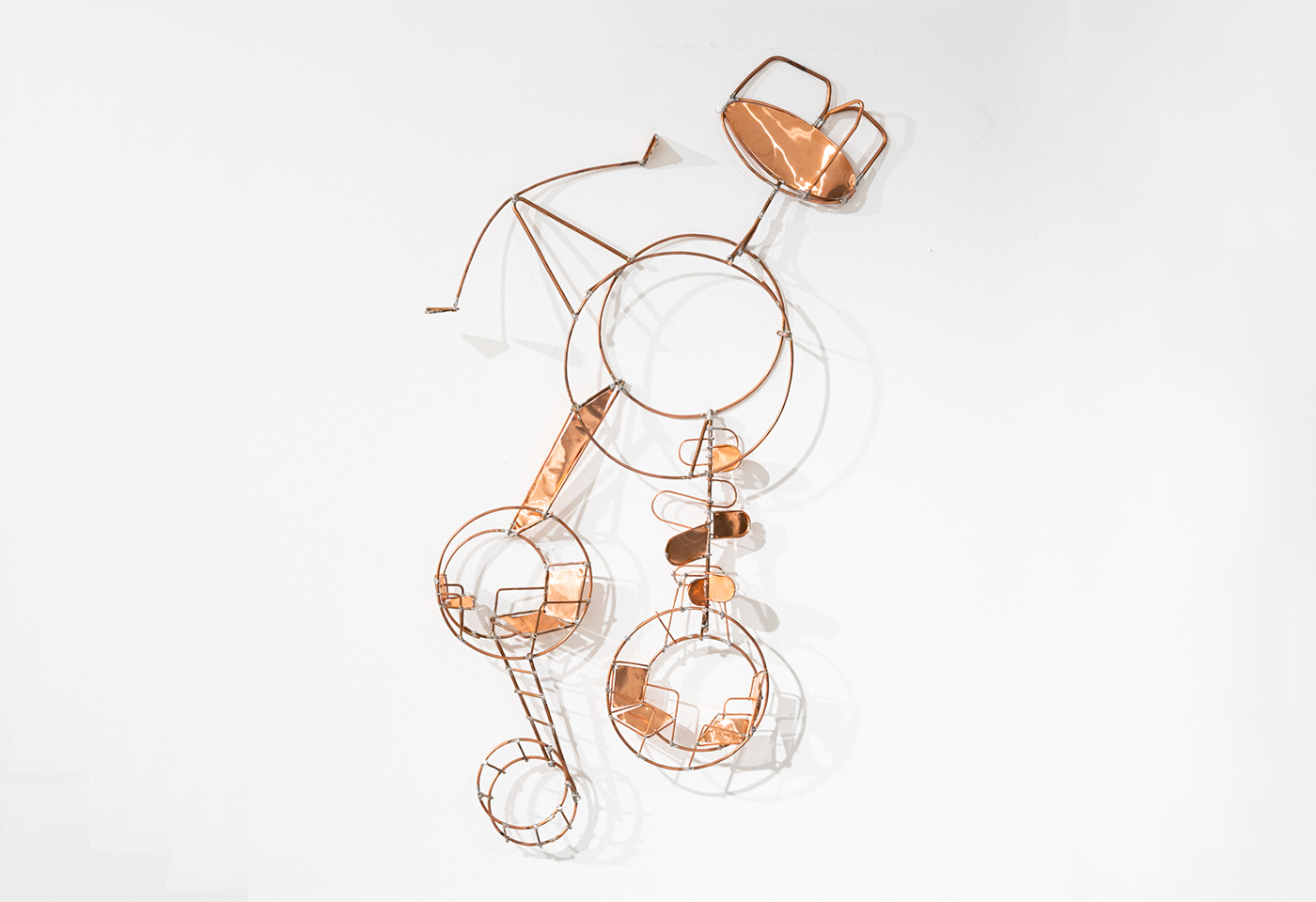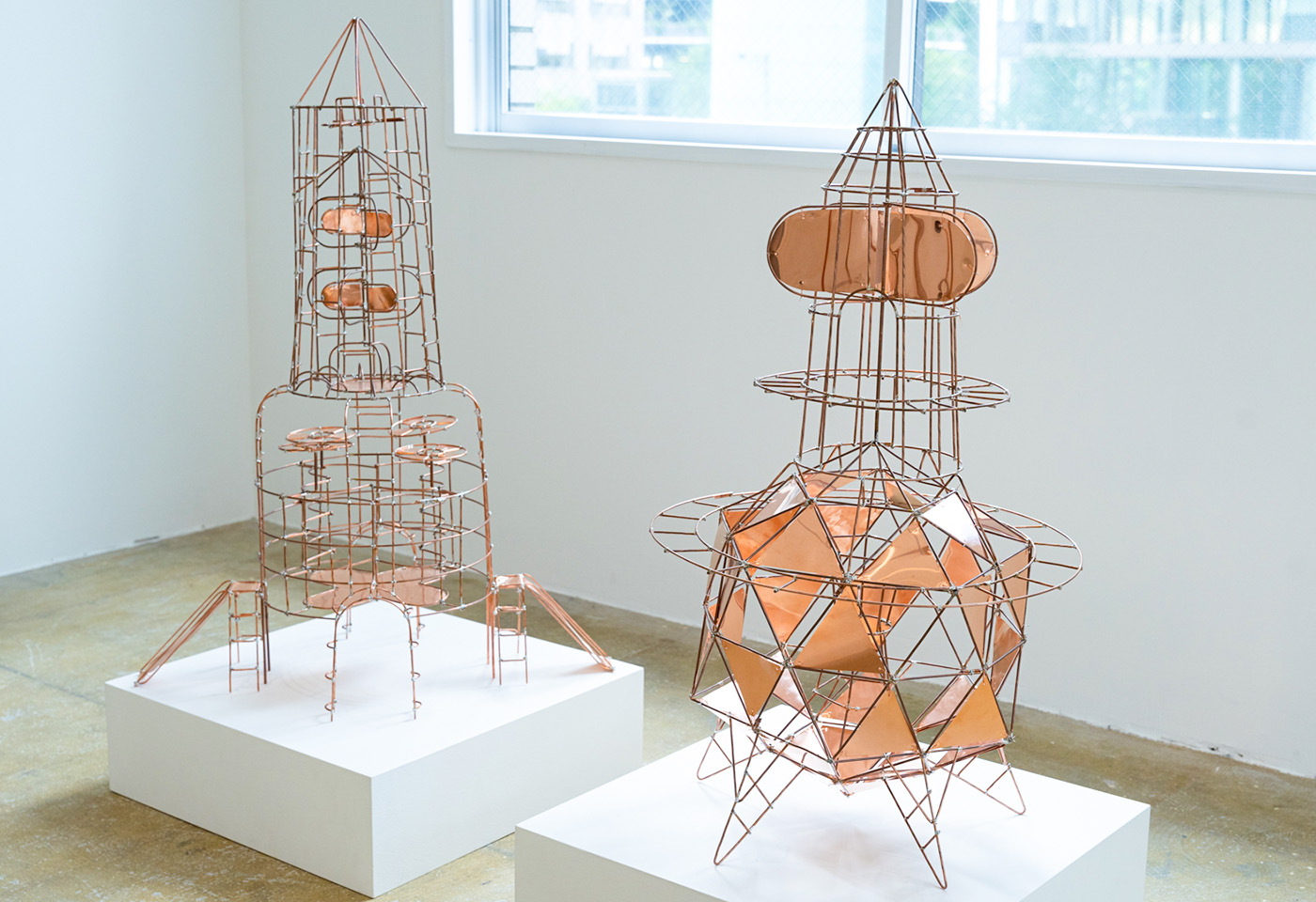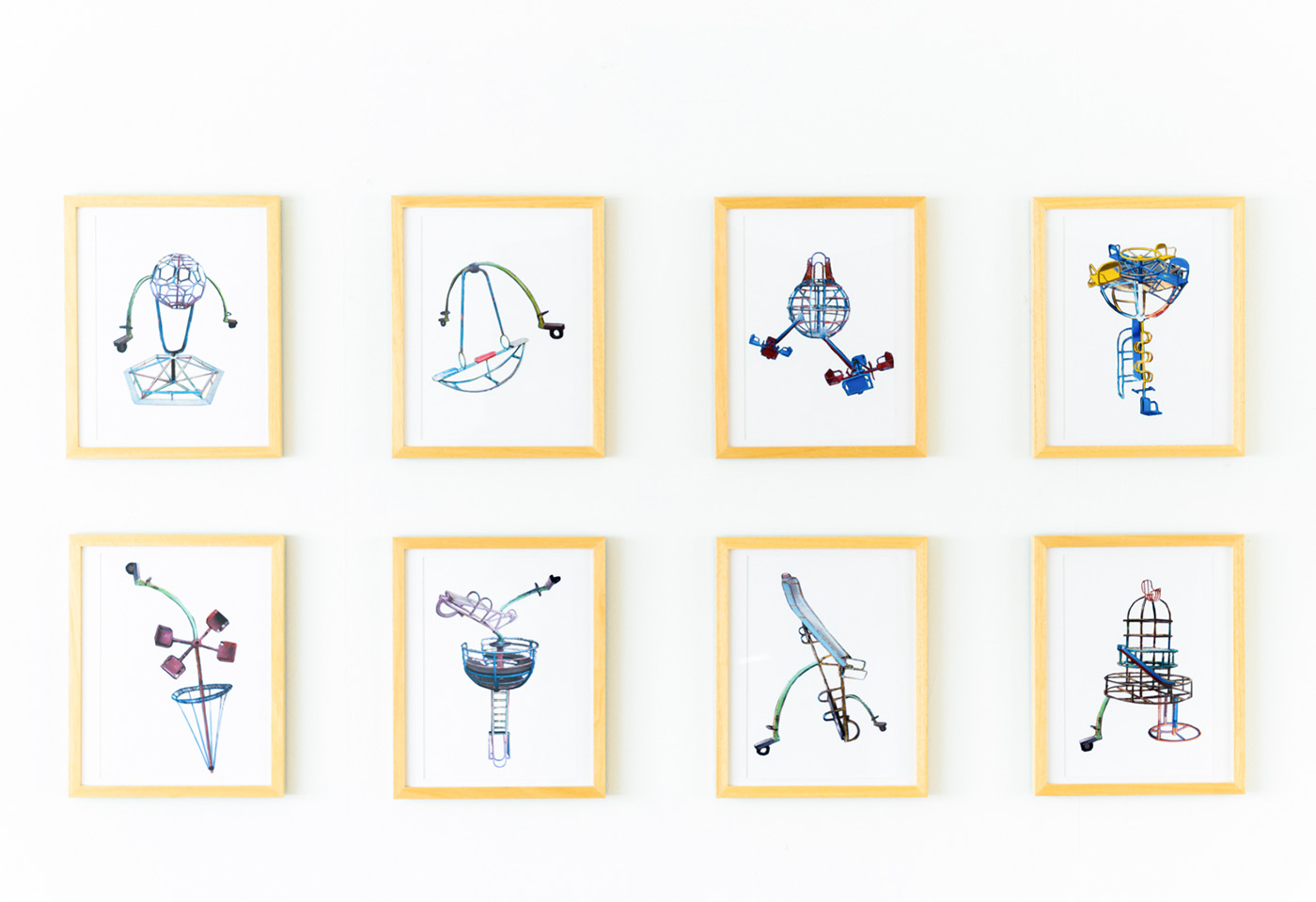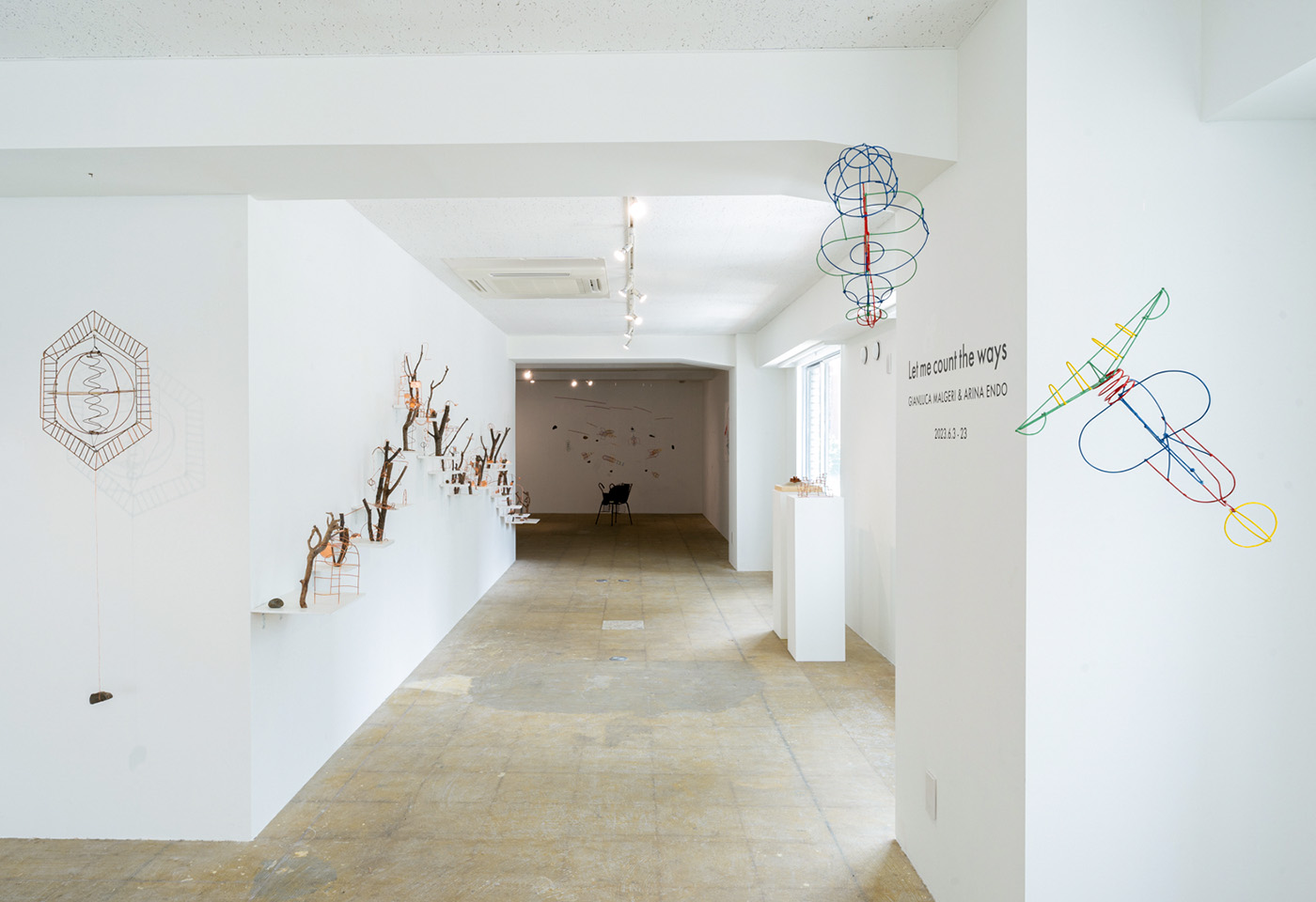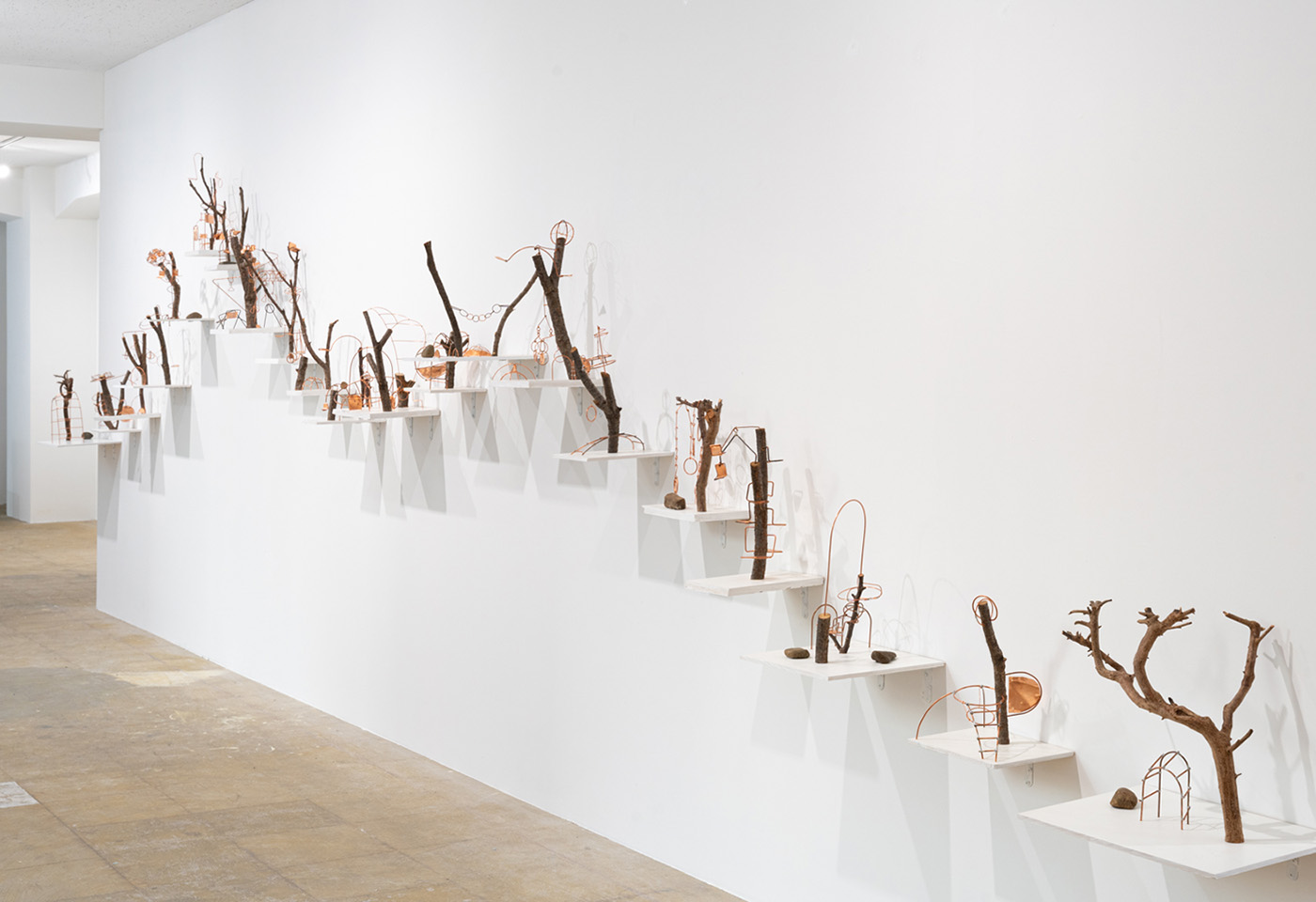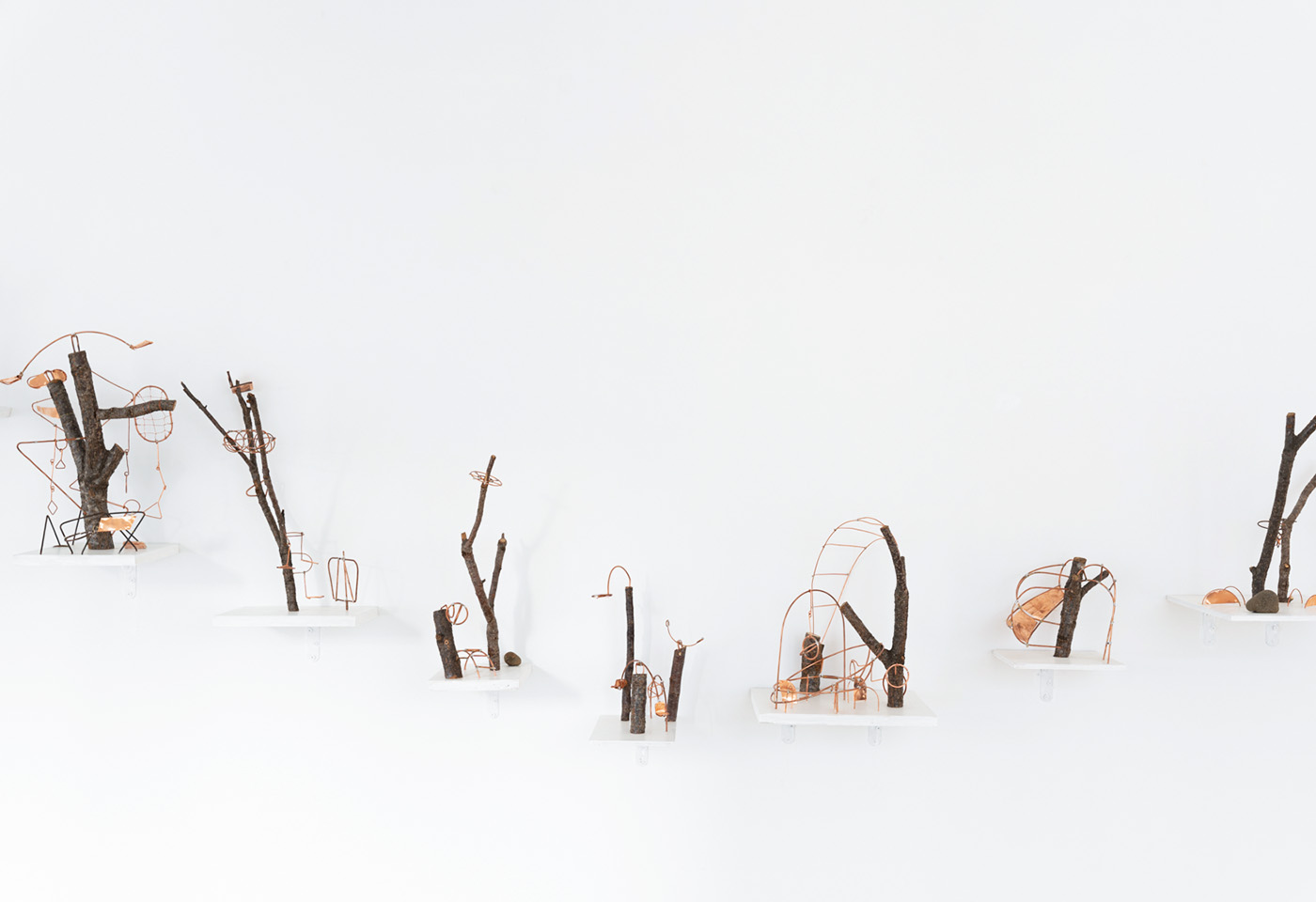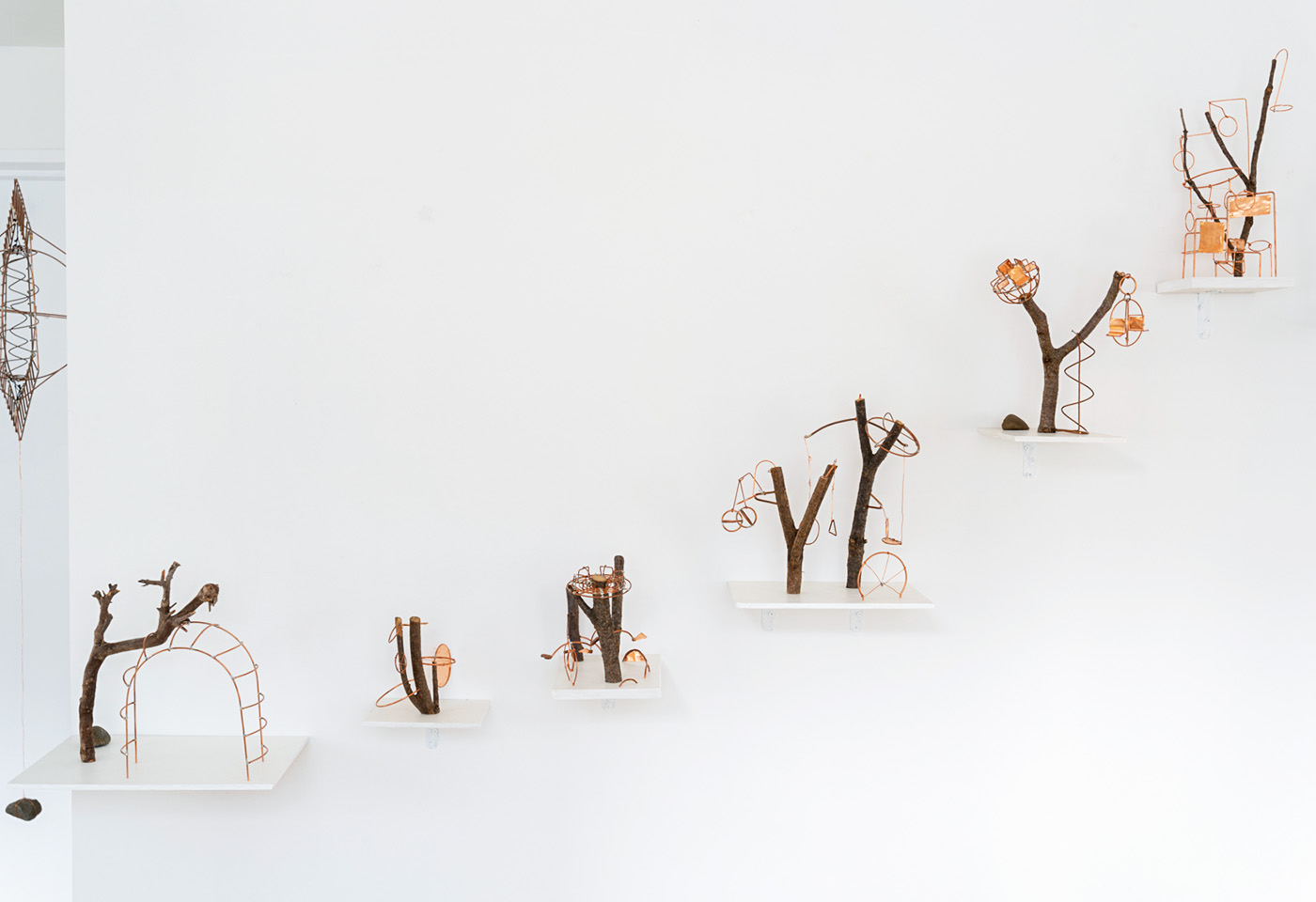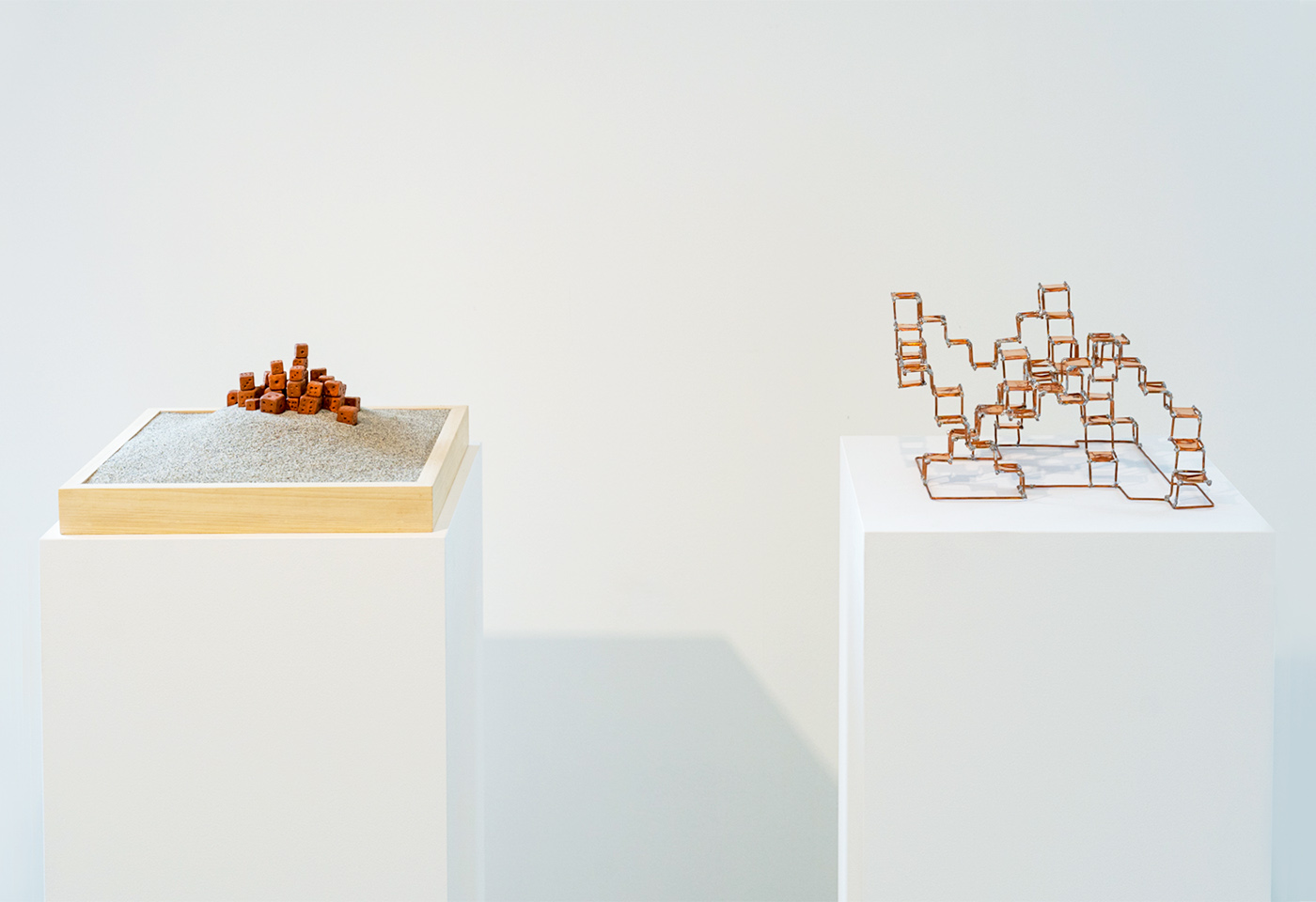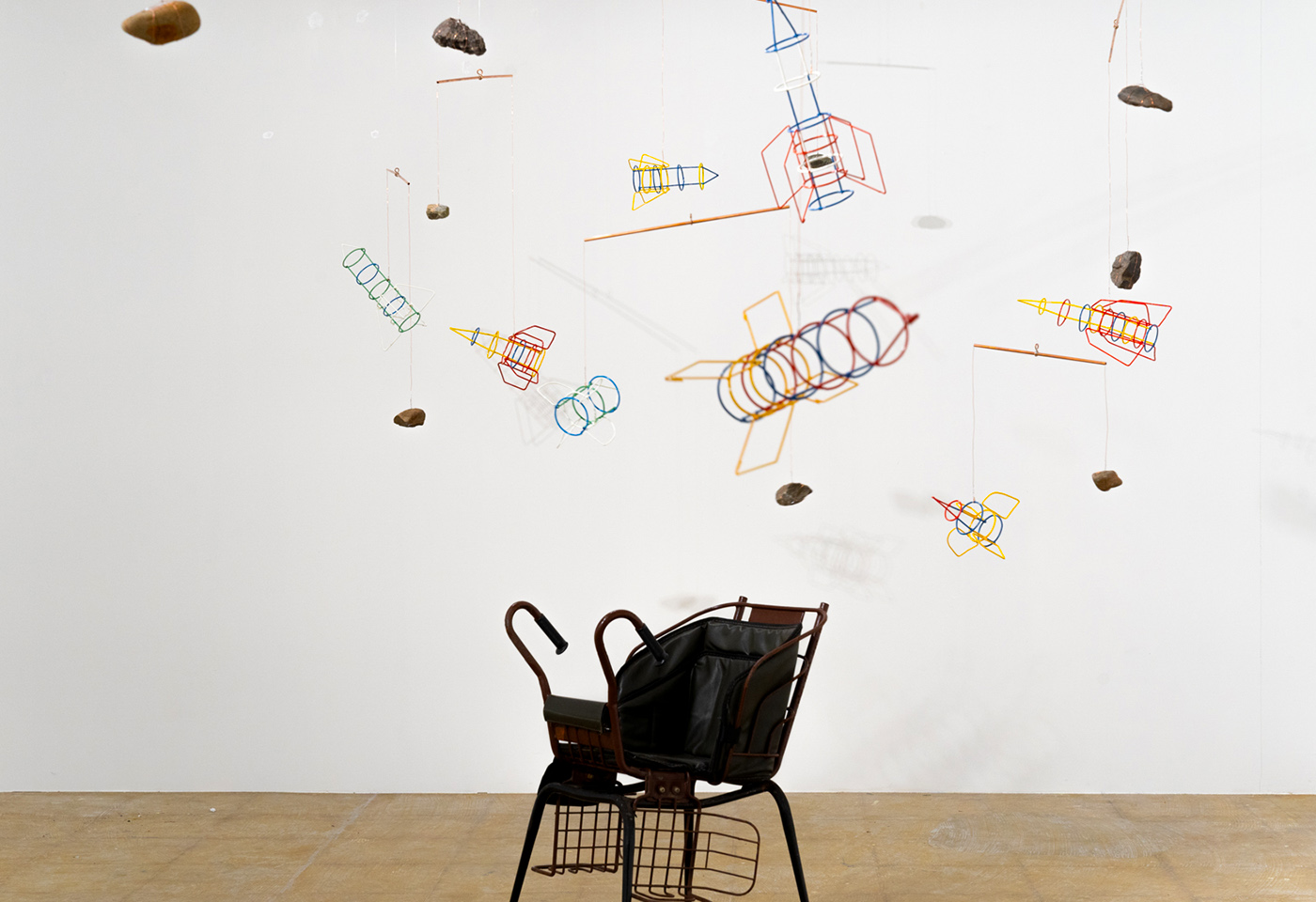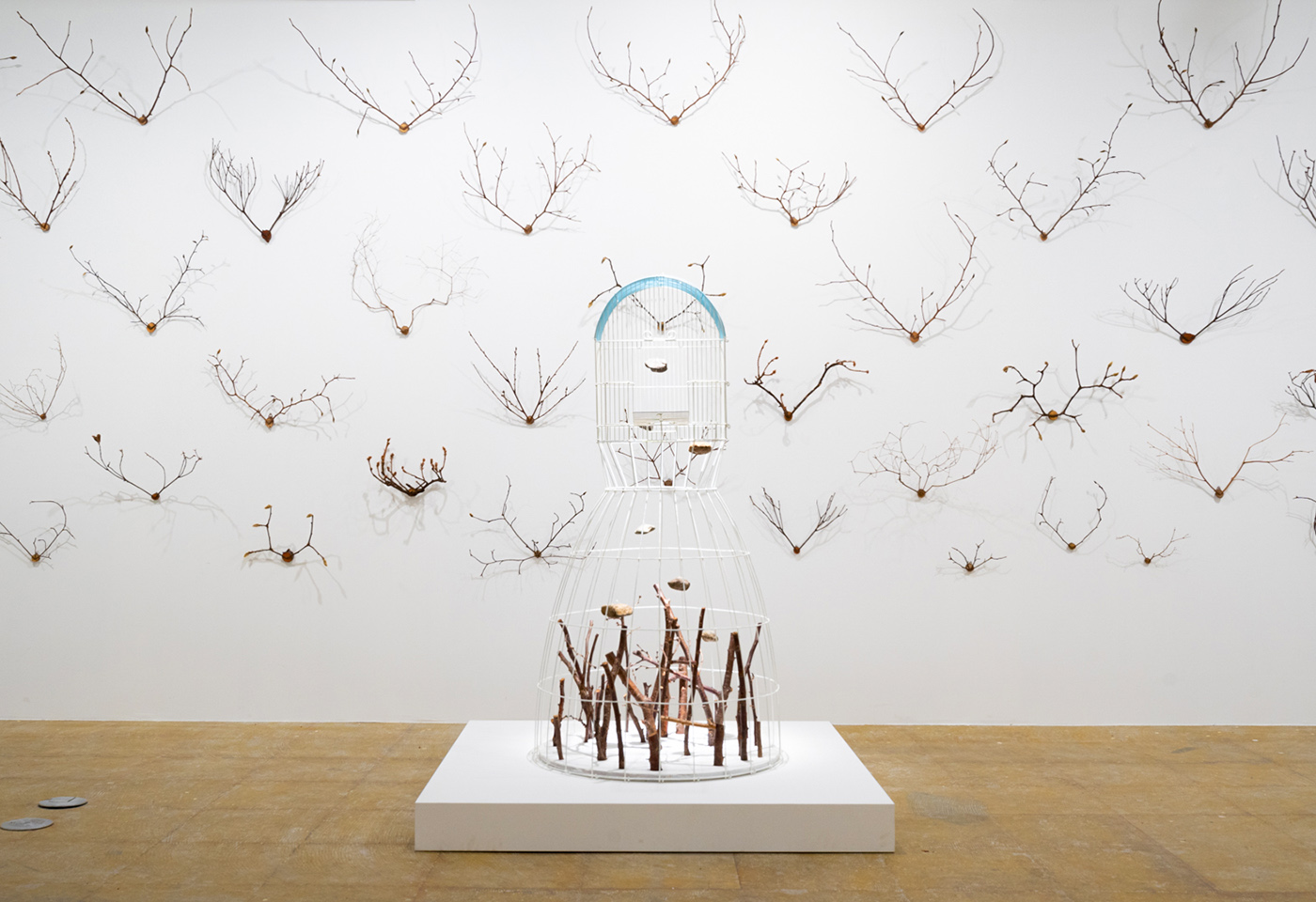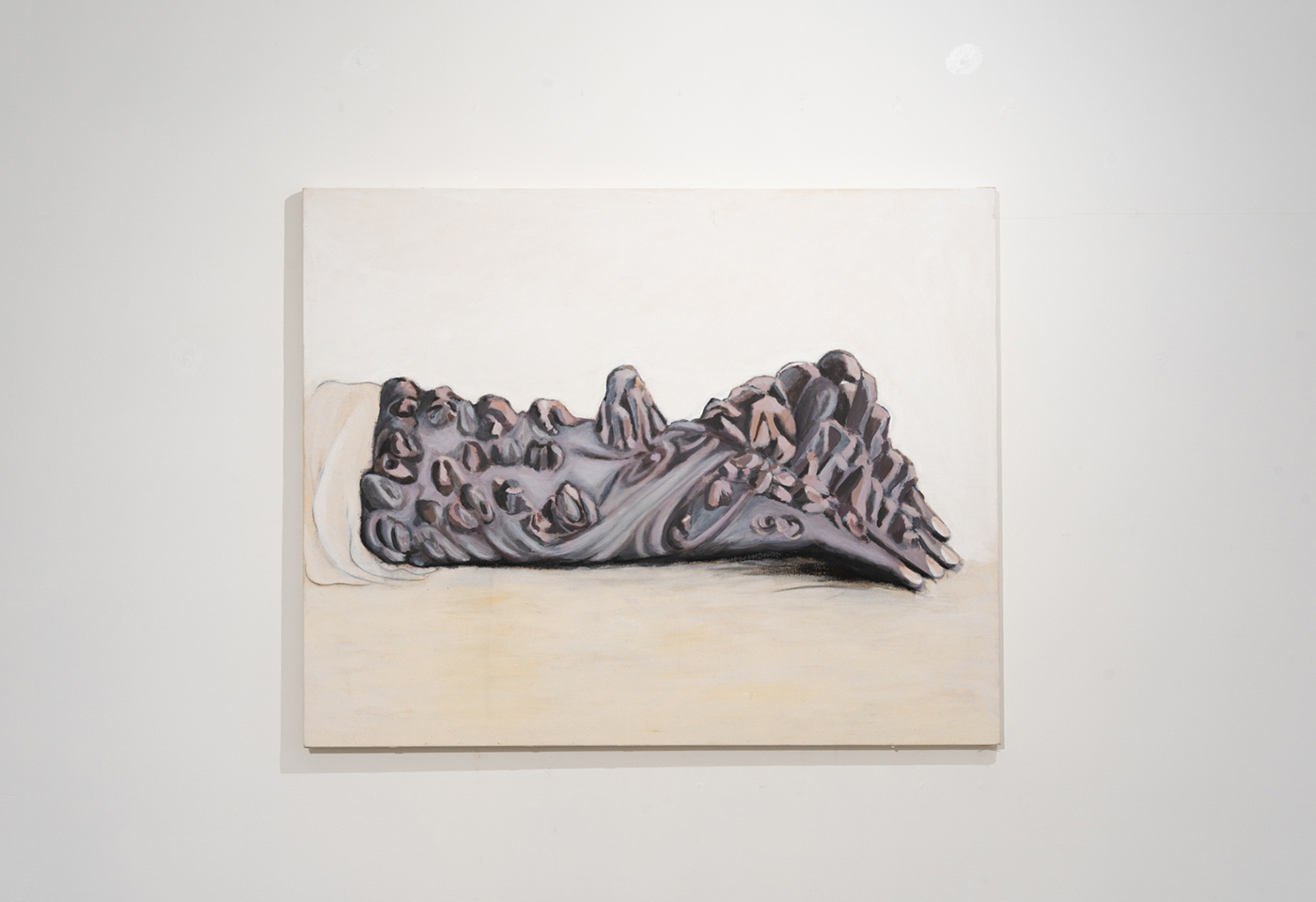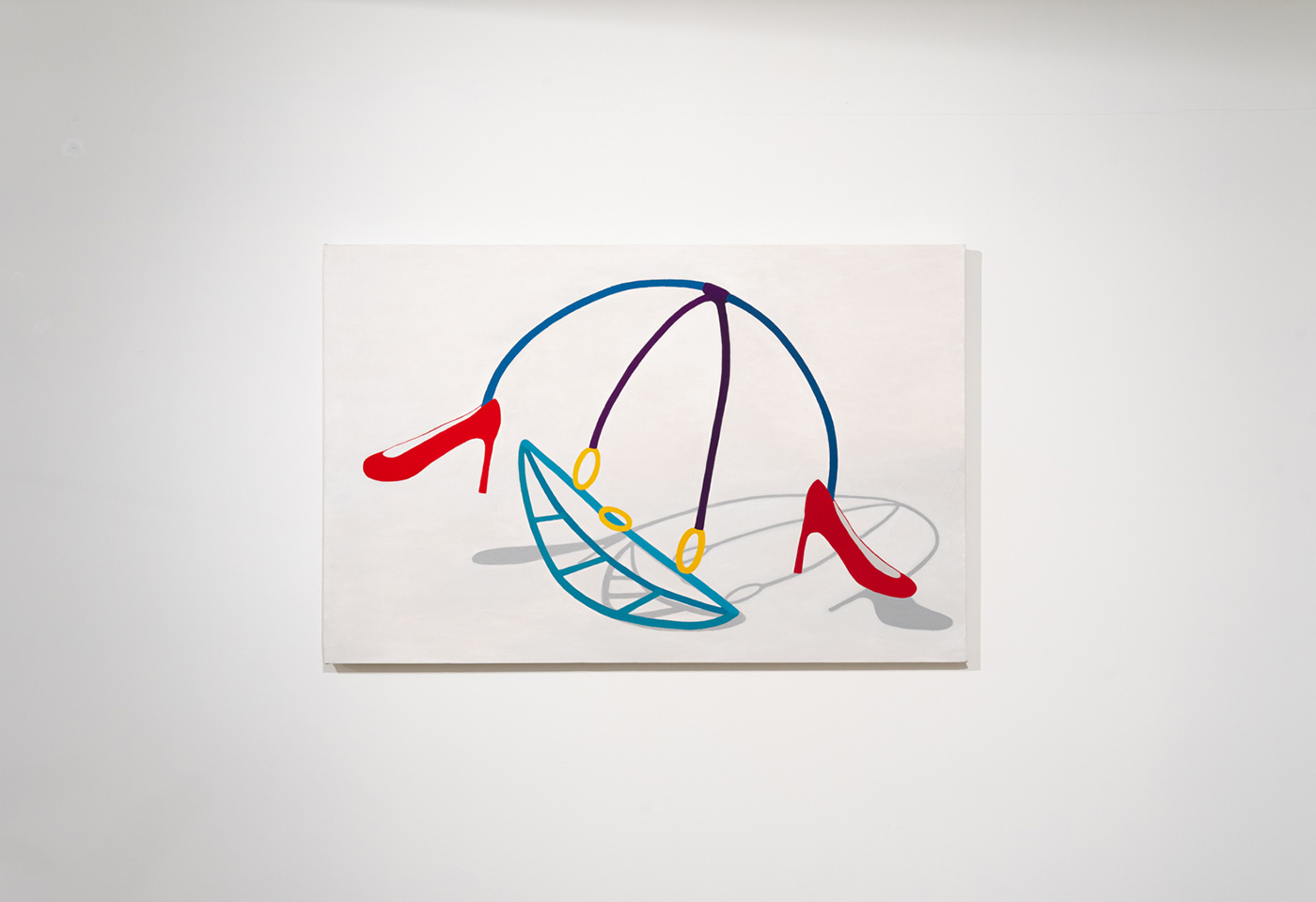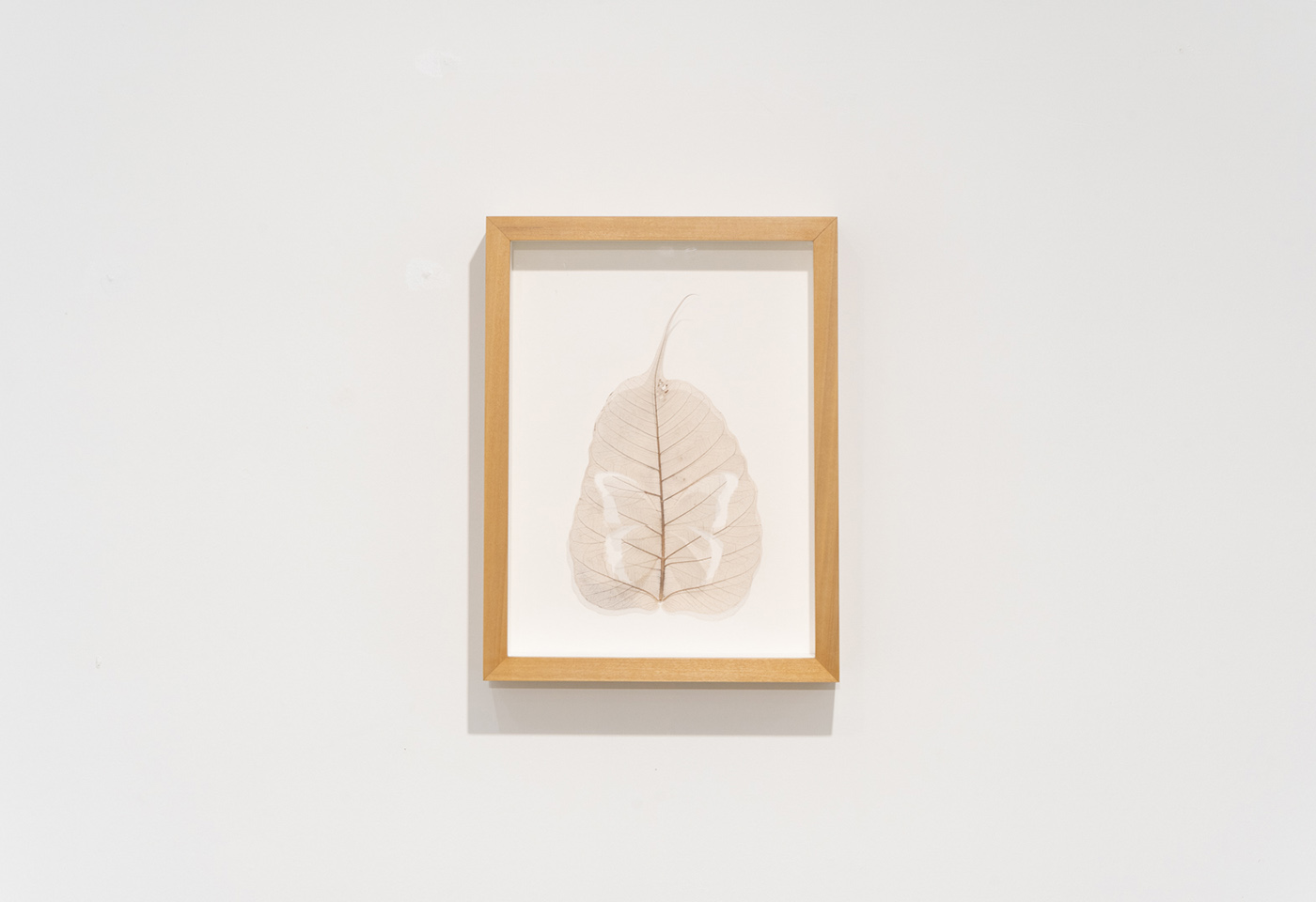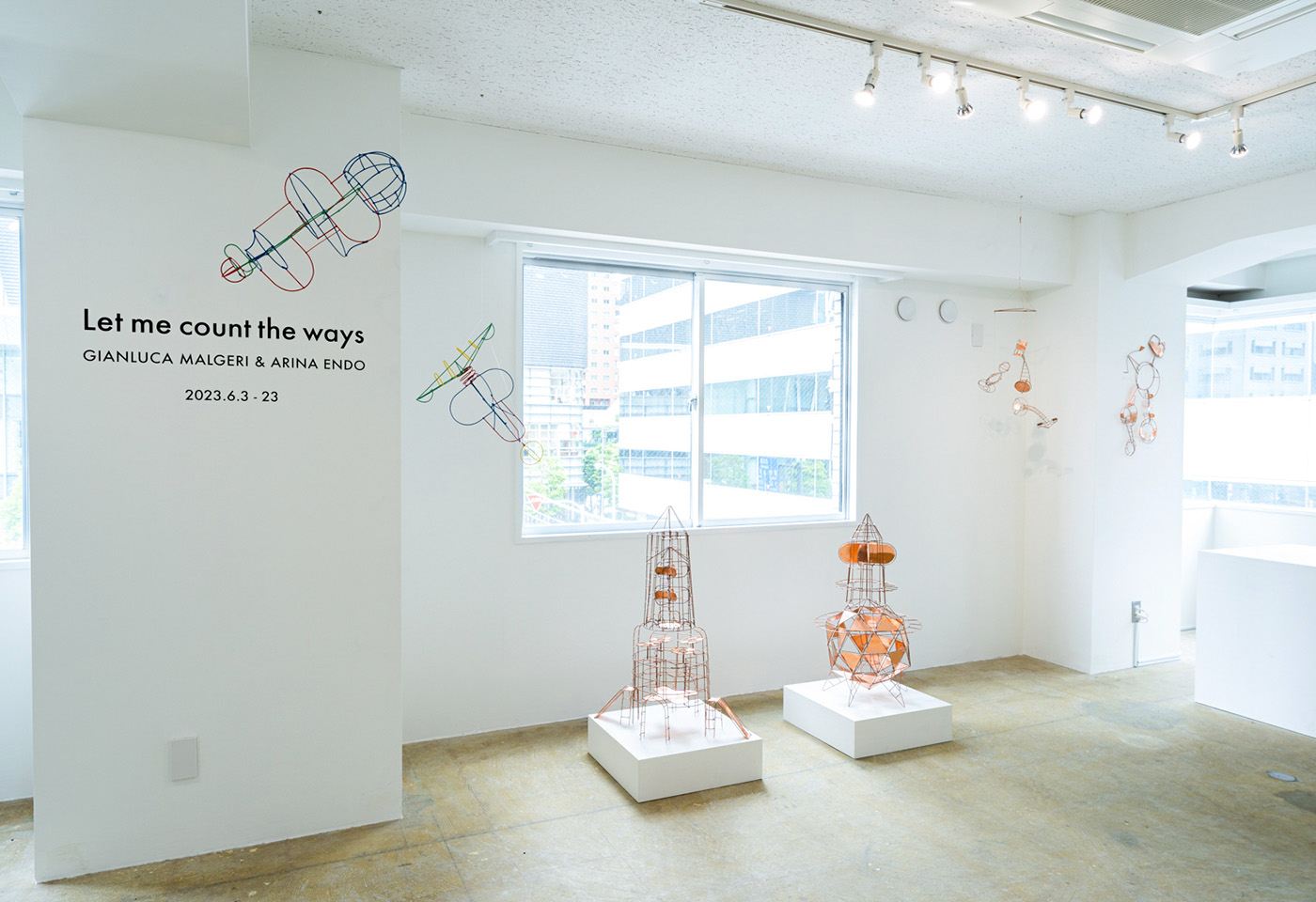Let me count the ways
2023 / Tokyo
“One needs a country, if only for the pleasure of leaving it”
Cesare Pavese, La Luna e i Falò, 1949
In the vast landscape of human movement, we find a myriad of travelers, each distinguished by their motivations, attitudes, and identities. There are flâneurs, who find pleasure in aimless wandering; migrants, in search of a new home; expatriates, temporarily transplanted from their homeland, usually for work; tourists, who journey for leisure; exiles, forced to leave their countries; and explorers, driven to discover and illuminate new places. This rich tapestry of mobility is mirrored in literature, teeming with both real and fictional voyagers. From Ulysses to Marco Polo, from Phileas Fogg to Alice, from Don Quixote to Dorothy Gale, each embodies a particular form of journey. In Japanese literature, characters like Tsukuru Tazaki and Toru Okada extend this tradition.
Placing artists Gianluca Malgeri and Arina Endo into any one of these categories is challenging. They are travelers, embodying elements from all the characters mentioned above. Their journeys have been driven by the quest for opportunity, the pull of curiosity, the desire to learn. They have savored their adventures, felt the tug of homesickness, experienced the exhilarating disorientation of new environments, and the demanding struggles of assimilation. Their paths have been marked by both determination and frustration.
This exhibition signifies a defining moment in Gianluca and Arina’s journey, serving as the threshold of their return. However, the terminus of this journey back remains an enigma. Arina is seemingly leaving her home – Japan; Gianluca is returning to his home country – Italy. Gianluca’s birthplace in Southern Italy is no longer the home he once knew; similarly, the Italy he left behind has evolved beyond recognition. Time has sculpted a different landscape and, in tandem, altered the man himself. Similarly, Arina is about to move in a country that might look and feel very different from the one she visited; if anything, because the distance between being a visitor and a resident is immense. Consequently, the exhibition invites us into a paradox: the destination of return, Italy, is both familiar and foreign. And so is the point of departure, Japan.
his exhibition serves not just as a spatial map of their artistic journey, but more importantly, as a temporal instrument. Each work displayed is a window into a specific moment in time, allowing Gianluca, Arina and the viewers alike to travel back, revisiting the sites and epochs of their creative journey. The selected pieces and themes reflect the course of their evolution as artists, enabling them to re-encounter and re-contextualize the events that have shaped their trajectory.
Their process echoes the strategy of the literary character Little Thumb, crafted by Charles Perrault, who sprinkles pebbles along his path to ensure his safe return from the forest. Like Little Thumb, Gianluca and Arina now find themselves retracing their steps, gathering the symbolic stones they scattered along their path, in hopes of navigating their way out of the metaphoric woods. Each piece of art is a pebble, a tangible marker of where they have been, literally or metaphorically. However, they keenly aware that this path of return may lead into new, unexplored territories and perhaps, they are even primed for this possibility. After all, if the concept of home has morphed beyond recognition, then this journey backward effectively becomes another journey forward. It's a reversal of direction that doesn't deny progress but redefines it.
Thus, this exhibition is more than just a display of art; it is an open invitation to join Gianluca Malgeri and Arina Endo on this unique journey. As visitors, we are given the chance to travel with them on this return trip that paradoxically also projects into the future. Together, we explore the intersections of memory and evolution, past and future, familiarity and novelty – creating a shared exploration of time, identity, and the mutable concept of home.
Ibiza, Spain, 24th May 2023
Giovanni Innella
